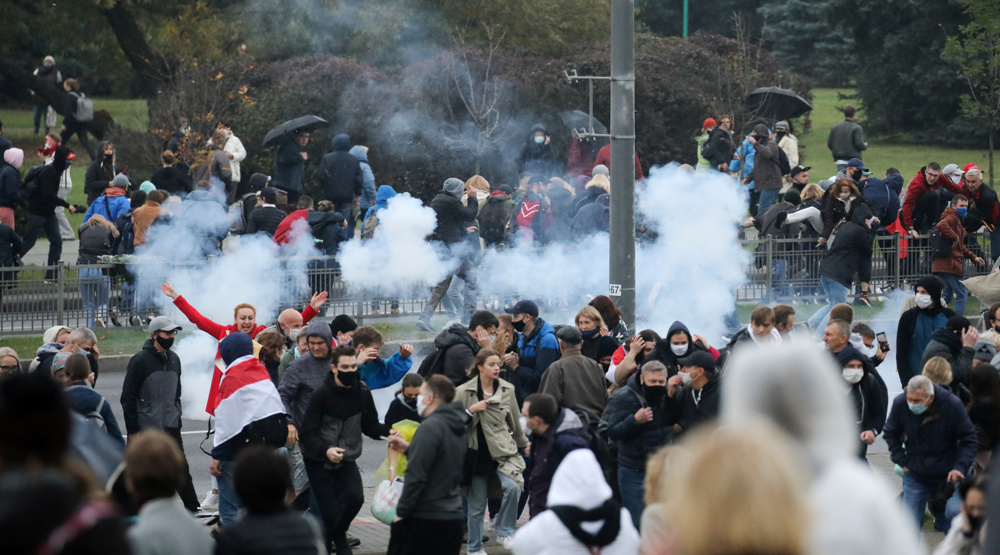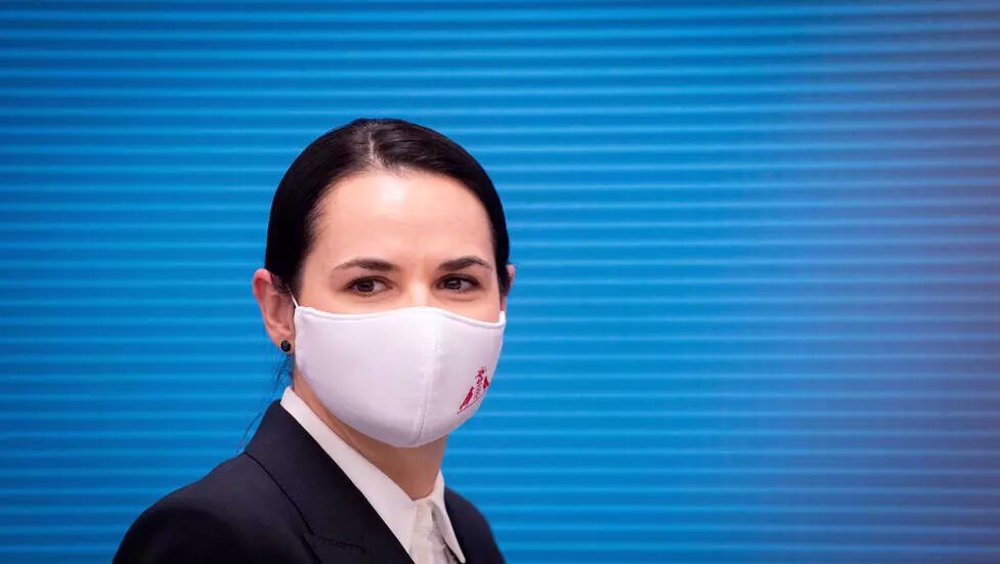Belarus protests: Govt. says might use live fire against radical organized groups
The situation remains tense in Belarus which has been the scene of anti-government rallies since August, with the country's Interior Ministry now threatening to use live fire against "radical" and "organized" opposition protesters.
On Monday, police fired tear gas and stun grenades to disperse a crowd of pensioners who had gathered in the capital Minsk for a demonstration against President Alexander Lukashenko.
Roman Lashkevich, a spokesman for the Municipal Department of Internal Affairs of the Minsk City Executive Committee, told Sputnik on Tuesday that most of the participants in Monday's rally were in their retirement age.
Media reports said the protesters called for the resignation of President Lukashenko, chanting “Go away!” and carrying white flags with a red stripe, a symbol of the Belarusian opposition.
“There were stun grenades and tear gas used when citizens began to show aggression against law enforcement officers,” Lashkevich said.
According to the spokesman, arrests were also made at the unauthorized rally, but the number of detainees was not immediately clear.

The Interior Ministry said on Monday that opposition protests had turned radical and thus law enforcement forces would be allowed to use live ammunition in the streets if needed.
“The protests, which have shifted largely to Minsk, have become organized and extremely radical,” the ministry said in a statement.
“In this regard, the Interior Ministry’s employees and internal troops will not leave the streets and, if necessary, will use special equipment and military weapons,” the statement added.
Belarus has been experiencing unrest since the August presidential election, which Lukashenko won.
Lukashenko’s main political opponent, Sviatlana Tsikhanouskaya, rejected the official results of the vote and claimed there had been voter fraud. Western governments came out in her support, repeating the allegations of vote rigging.
The European Union (EU) announced on September 15 that it did not recognize Lukashenko as the legitimate president of Belarus.
On October 2, the bloc imposed sanctions against 40 Belarusian officials over allegations that Minsk had rigged the August presidential election in Lukashenko’s favor and cracked down on political dissent afterwards.
On Monday, EU foreign ministers agreed to impose sanctions on Lukashenko himself and other senior officials.
Lukashenko has rejected allegations that his government tampered with votes. Still, in an attempt to soothe the political tensions in the country, he has proposed the drafting of a new constitution less reliant on the head of state.
'Next to impossible' to rescue patients from Gaza's Kamal Adwan Hospital: Director
VIDEO | Vietnam current prosperity
Report blames gasoil exports for shortage at Iranian power plants
VIDEO | Hind Rajab Foundation names Israeli war criminals vacationing after Gaza genocide
VIDEO | Australians rally for Gaza ahead of Christmas festivities
VIDEO | Attacks on Sana'a
Iran reports further drop in annual inflation rate in December
Israel indicts two settlers over suspected spying for Hezbollah















 This makes it easy to access the Press TV website
This makes it easy to access the Press TV website